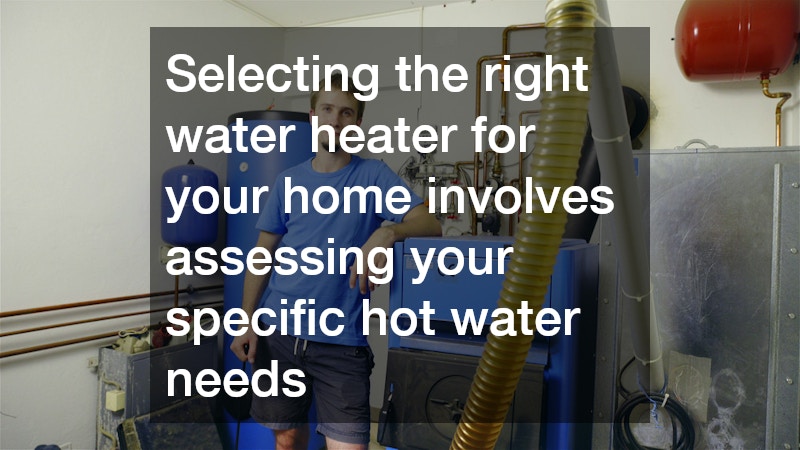Read on for a comprehensive overview of water heaters and the answers to common questions, offering insights from a professional perspective.
What Are the Different Types of Water Heaters?
Water heaters are pivotal in providing hot water for various household needs, and understanding the different types can help homeowners make informed choices. The most common types include traditional tank water heaters, which store and heat a specific volume of water, and tankless water heaters that offer hot water on demand without the need for a storage tank.
Additionally, solar water heaters harness renewable energy, making them an eco-friendly choice that can significantly reduce energy costs.
A traditional tank water heater typically has a lifespan of 10 to 15 years, depending on maintenance and usage. They are generally straightforward to install and are available in various sizes to suit different household needs. Tankless models, on the other hand, can last up to 20 years and provide endless hot water as long as the demand does not exceed their output capacity. Solar heaters, although requiring a higher upfront investment, can result in substantial savings over time.
It’s essential to consider the environment in which the water heater will be used. For instance, tankless water heaters are characterized by their compact size and ability to be installed in smaller spaces, making them ideal for apartments or smaller homes. Choosing between these types will depend on individual preferences regarding energy usage, cost, and the specific hot water requirements of the household.
How Do You Choose the Right Water Heater?
Selecting the right water heater for your home involves assessing your specific hot water needs, the size of your household, and energy efficiency preferences. Start by evaluating how much hot water you typically use during peak hours, as this will significantly influence the size and type of heater you should consider. For instance, larger families may benefit from traditional tank heaters that can provide a significant volume of hot water when needed.
Another factor to consider is energy efficiency and operating costs. Look for water heaters with high energy factor (EF) ratings, as these typically use less energy and can lead to lower utility bills. For those looking to minimize their carbon footprint, eco-friendly options like solar water heaters or energy-efficient tankless models can be excellent choices. Don’t forget to consider local incentives or tax credits for energy-efficient appliances.
Moreover, installation costs and maintenance requirements should also factor into your decision-making process. While some water heaters may have a lower price point initially, they could incur higher long-term costs in energy consumption or repairs. Consulting with a professional installer can provide valuable insights tailored to your specific home environment and needs, ensuring that you make the most efficient and cost-effective choice.
What Are the Common Problems with Water Heaters?
Homeowners often encounter frequent issues with water heaters, which can range from minor inconveniences to major malfunctions. One common problem is insufficient hot water, which may indicate a failing heating element or sediment buildup, particularly in traditional tank heaters. Understanding the signs of these issues can help prevent further complications and costly repairs.
Leaks are another common concern, which can result from corrosion, loose connections, or overpressure. Identifying the source of a leak promptly is essential, as it can lead to further damage not just to the water heater but also to the surrounding areas in the home. Regular inspections can help catch these issues early, potentially saving homeowners from extensive repairs or replacements.
Odors and strange noises emanating from water heaters can also signal a problem. For instance, sediment buildup in the tank may result in rumbling noises, whereas a sulfur smell could indicate bacterial growth. Awareness of these distinct symptoms enables homeowners to take proactive measures, such as flushing the tank or seeking professional assistance to maintain optimal performance.
How Often Should You Maintain Your Water Heater?
Regular maintenance of water heaters is vital to ensure longevity and efficient performance. Most professionals recommend flushing the tank at least once a year to remove sediment buildup, which can hinder heating efficiency and lead to more significant issues if left unchecked. This procedure is particularly important for traditional tank models but can benefit tankless heaters as well.
Checking the anode rod is another crucial maintenance task that should be performed every few years. This rod is designed to prevent tank corrosion by attracting corrosive elements in the water. Once the anode rod is significantly corroded, it can no longer protect the tank, leading to leaks or failures. Proper maintenance of the anode rod can extend the life of the heater considerably.
In addition to flushing the tank and checking the anode rod, inspecting the connections and valves regularly for any signs of wear or leaks is also essential. Homeowners should familiarize themselves with the water heater’s manual to understand specific maintenance requirements for their model, which will better equip them to keep their system running smoothly over time.
Understanding water heaters and their maintenance can significantly improve your home’s efficiency and comfort. Consulting with a professional can provide tailored solutions for your specific needs. Whether you’re selecting a new water heater or maintaining your current one, informed decisions can lead to greater satisfaction and savings for years to come.



